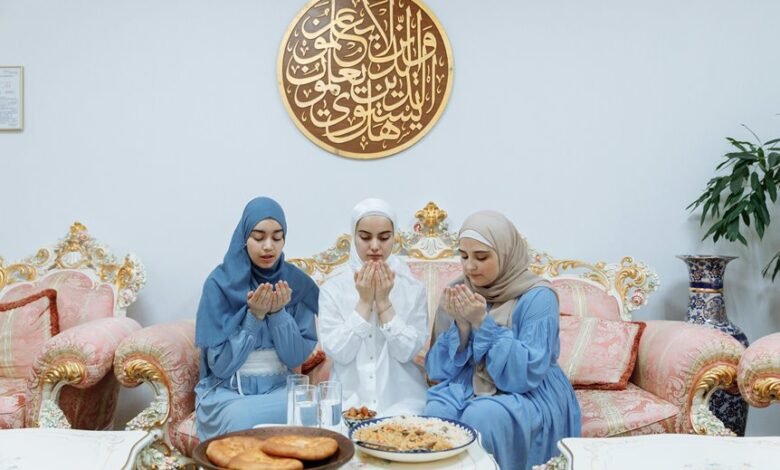Shia Iftar Time Islamabad: Accurate Timing for Shia Muslims

In Islamabad, the timing of Iftar holds profound significance for Shia Muslims during Ramadan. Accurate Iftar timings are dictated by local prayer schedules, aligning with the moment of sunset. This precision not only enhances the spiritual experience but also reinforces community bonds. Understanding these timings is essential for fostering a deeper connection to the observance. The implications of such practices extend beyond individual experiences, prompting a closer examination of communal traditions during this holy month.
Understanding Iftar and Its Significance in Ramadan
Iftar, the evening meal that breaks the fast during Ramadan, holds profound significance within the Islamic tradition.
It fosters spiritual significance as participants reflect on gratitude and self-discipline.
Moreover, Iftar promotes communal harmony, as families and communities gather to share meals, reinforcing bonds and collective identity.
This ritual not only nourishes the body but also nurtures the soul and strengthens social ties.
Determining Accurate Iftar Timings in Islamabad
As the sun sets over Islamabad during Ramadan, determining the precise Iftar time becomes essential for those observing the fast.
Calculating Iftar involves considering local prayer timings, which vary slightly each day.
Accurate knowledge of these times ensures that individuals can break their fast in harmony with the sanctity of the moment, fostering both spiritual fulfillment and communal connection among Shia Muslims in the city.
Community Practices for Iftar Among Shia Muslims
While the call to prayer marks the end of the fast, community practices for Iftar among Shia Muslims in Islamabad play a vital role in enhancing the spiritual experience of Ramadan.
These Iftar traditions often involve communal gatherings, fostering unity and brotherhood. Families and friends come together to share meals, emphasizing generosity and compassion, which are central to the essence of the holy month.
Tips for Celebrating Iftar During Ramadan
To enhance the Iftar experience during Ramadan, individuals can adopt several thoughtful strategies that promote both spiritual reflection and communal enjoyment.
Emphasizing traditional dishes fosters cultural heritage, while organizing family gatherings strengthens bonds.
Incorporating prayer and gratitude into the Iftar routine encourages mindfulness.
Additionally, sharing food with those in need cultivates a sense of community and compassion, enriching the overall experience.
Conclusion
In conclusion, the observance of accurate Iftar timings holds profound significance for Shia Muslims in Islamabad, symbolizing not just the end of a daily fast but also a moment of communal unity and spiritual reflection. As the sun sets, it beckons individuals to gather and share in gratitude, reinforcing the bonds of community. Thus, one may ponder: in a world often fragmented by differences, could the collective practice of Iftar be the thread that weaves hearts together?




